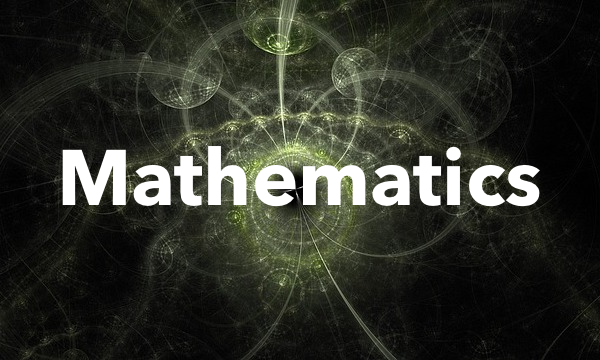
Course Description
Curriculum
Community
Overview
Mathematics is one of the oldest academic subjects. Ideas relating to number and magnitude date back to pre-historic times, and all the major ancient civilizations have left a legacy that still can be seen in the modern study of mathematics.
Modern mathematics can be broadly divided into two main types, pure mathematics and applied mathematics. Pure mathematics considers abstract questions that may or may not be related to the world we live in, and seeks to find precise answers in the form of proofs or counterexamples. Because of the precision required, it is wise to start with a grounding in deductive logic, and gradually build on that to form a precise understanding of what we mean by common ideas such as set, number, and function.
Applied mathematics has a different emphasis. Instead of being concerned with precise proofs, applied mathematicians use ideas from mathematics to shed insight on real world phenomena ranging from economics, to biology, to physics.
Core Curriculum
The core topics introduce the field of mathematics and give students the skills and understanding to choose and pursue their interests in the specialized topics. On completing the core, students will have the grounding necessary to explore advanced mathematics. The core topics are:
Pure Mathematics
- Logic for Mathematicians
- Real Analysis
- Groups, Rings and Fields
- Linear Algebra
- Complex Analysis
- Elementary Number Theory
- Elementary Geometry
- Point-Set Topology
Applied Mathematics
- Multivariate Calculus
- Differential Equations and Fourier Analysis
- Mechanics
- Elementary Probability
- Calculus of Variations
- Introductory Statistics
- Complexity and Cryptography
- Special Relativity and Elementary Quantum Theory
- Scientific Programming
Specializations
Specializations should be discussed with the Director of Studies. On completing specializations, students will be able to independently read advanced literature and conduct a final project in that topic. Some suggested specializations are:
- Galois Theory
- Functional Analysis
- Combinatorics
- Differential and Riemannian Geometry
- Advanced Mathematical Physics
- Stochastic Analysis
- Mathematical Biology
Schedule a Free Consultation
We'd love to get to know you and help you get pointed in the right direction.